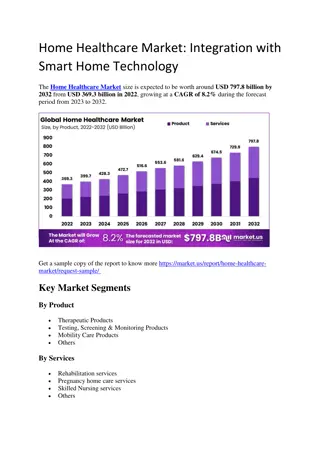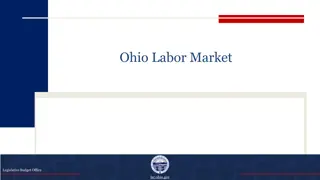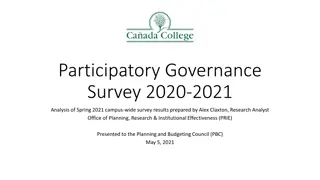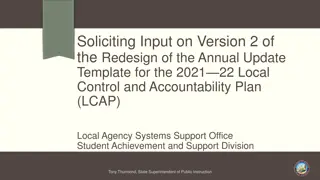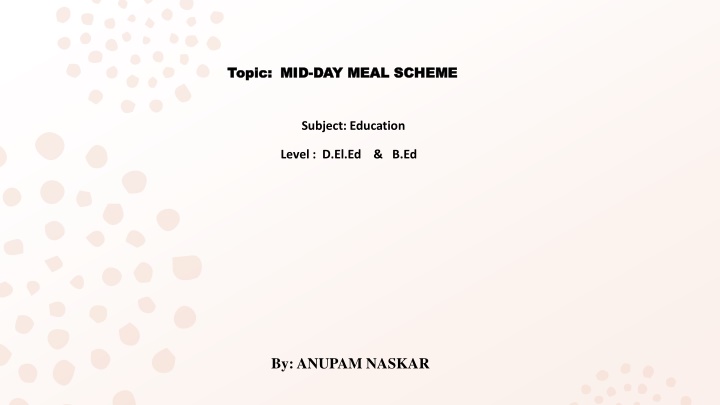
Mid-Day Meal Scheme in India: Improving Nutrition for Students
Learn about the Mid-Day Meal Scheme in India, a government program aimed at enhancing the nutritional status of school children. Explore its history, objectives, organizational structure, and the vital role it plays in encouraging regular school attendance and reducing dropouts. Discover how the scheme provides free lunches to millions of students, promoting socialization and empowering women through employment opportunities.
Uploaded on | 0 Views
Download Presentation

Please find below an Image/Link to download the presentation.
The content on the website is provided AS IS for your information and personal use only. It may not be sold, licensed, or shared on other websites without obtaining consent from the author. If you encounter any issues during the download, it is possible that the publisher has removed the file from their server.
You are allowed to download the files provided on this website for personal or commercial use, subject to the condition that they are used lawfully. All files are the property of their respective owners.
The content on the website is provided AS IS for your information and personal use only. It may not be sold, licensed, or shared on other websites without obtaining consent from the author.
E N D
Presentation Transcript
Topic: Topic: MID MID- -DAY MEAL SCHEME DAY MEAL SCHEME Subject: Education Level : D.El.Ed & B.Ed By: ANUPAM NASKAR
GOVERNMENT SCHEMES Sarva Shiksha Abhiyan (SSA) National Program for Education of Girls at Elementary Education (NPEGEL) Mid-Day Meal Scheme (MDM) Right to Education (RTE) Act Beti Bachao, Beti Padhao Kasturba Gandhi Balika Vidyalaya Scheme for Infrastructure Development in Minority Institutes (IDMI)
MID-DAY MEAL SCHEME Midday Meal Scheme is a school meal programme of the Government of India for improving the nutritional status of school going students. This programme supplies free lunches on working days in Primary and Upper Primary Classes student in Government and Government Aided schools. Serving 120,000,000 children in over 1,265,000 schools and Education Guarantee Scheme centers, it is the largest such programme in the world.
BRIEF HISTORY In 1960, k.kamrajin Tamil-Nadu started the scheme. In 15th August, 1995, Government of India adapted this scheme as the National Programme of Nutritional Support to Primary Education (NP-NSPE). k.kamraj In November 28, 2001, the Supreme Court of India passed an order, to implement the Mid-Day Meal Scheme by providing every child in every Government and Government aided Primary School. In October 2007, the Scheme was extended to cover children of upper primary classes. This time NP-NSPE renamed as National Programme of Mid Day Meal in Schools .
OBJECTIVES OF MID-DAY-MEAL Encouraging poor children to attend school more regularly. Providing nutritional support, and Protecting children from classroom hunger. Increasing school enrolment and attendance. Improving socialization among children belonging to all castes. Social empowerment of women by creating employment. To reduce the drop-out students.
ORGANIZATIONAL STRUCTURE National Level (MHRD) (Nodal Departments) State Level (steering car monitoring committee) District Level (sub divisional officers and block panchayat offices) Block Level School Level (School Management Committee)
NUTRITIONAL SUPPORT To achieve the objectives, provision of food and protein intake with additional components for students of primary and upper primary school. The quantity of food calories and protein intake are: Calories 720 Calories - 480 Protein - 20 gms Protein - 12 gms Micronutrients like- iron, folic acid, vitamin A Micronutrients like- iron, folic acid, vitamin A Upper-Primary School Primary School
NUTRITIONAL SUPPORT The calories and protein are provided by cooked meal for the age group six to fourteen, the details are: Calories - 480 Protein - 12 gms Primary Upper Primary Item Micronutrients like- iron, folic acid, vitamin A Energy content (kcal) Energy content (kcal) Quantity in gms Quantity in gms Primary School Food grain 100 340 150 510 Calories 720 Pulses 20 70 30 88 Protein - 20 gms Vegetables 50 25 75 32 Oils/Fats 05 45 07 90 Micronutrients like- iron, folic acid, vitamin A Salt & Condiments As per need As per need - 0 Upper-Primary School Total 480 720
BENEFITS OF MID-DAY MEAL Promoting school participation Ensuring psychological benefits. Preventing classroom hunger Enhancing gender equity Facilitating the healthy growth of children
PROBLEMS FACED IN IMPLEMENTATION OF MDM Teachers pointed out a number of problems such as problem of management of the mid day meal: wastage of food by the students, Insufficient and delayed receipt of funds, Workload of teachers, Procuring dry ration from the retail shops, Lack of infrastructure for storage, cooking and serving food
CONCLUSION MDM has contributed positively towards Social change. It has vast potential of transforming children s minds in healthy direction. It has some difficulties in implementation, which can be sorted out with a will power to improve. The scheme has contributed towards checking Child labour.

